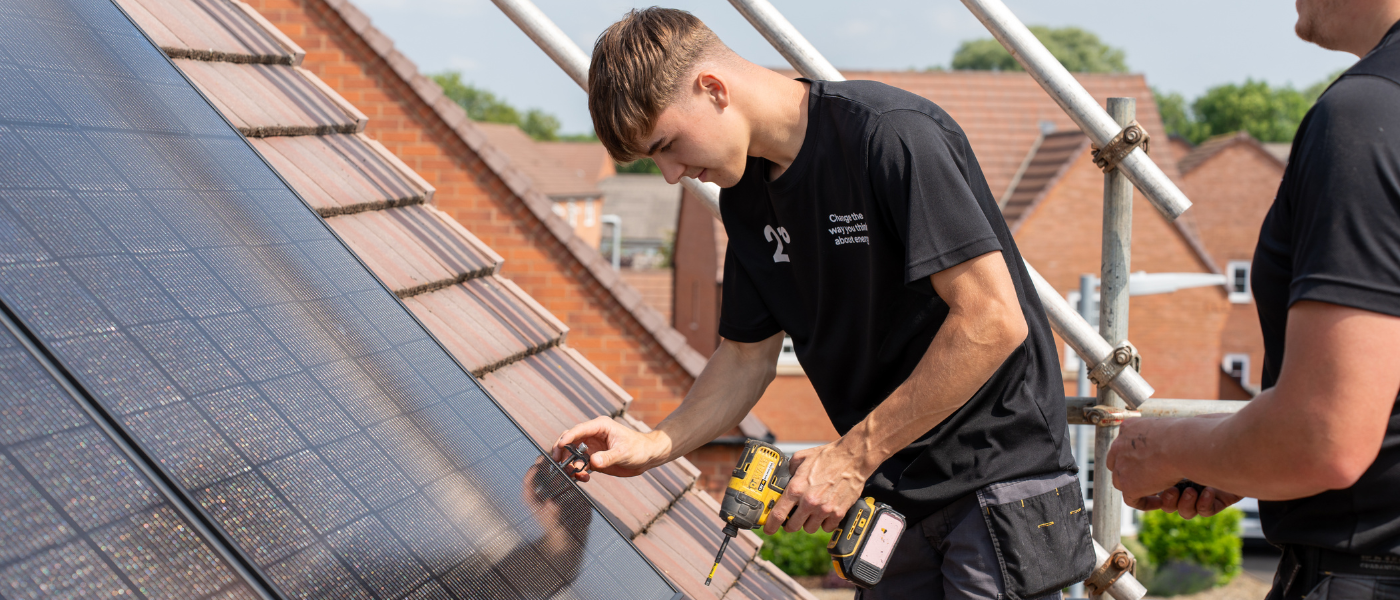Choosing the Right Solar Battery System for Your Business

Switching to solar energy is one of the smartest moves a business can make in today’s world. Solar will cut energy costs, boost your company’s sustainability credentials, and future-proofs operations against rising electricity prices. A key part of this transition is choosing the right solar battery system to store energy efficiently. Let’s dive into why solar batteries are a game-changer for businesses, how to pick the right system, and what you need to know about installation and maintenance.
Why Solar Energy for Your Business?
Solar power is a practical choice for businesses of all sizes. Installing solar panels can significantly reduce your electricity bills, especially for energy-intensive operations like manufacturing or retail. Beyond cost savings, solar energy helps businesses achieve energy independence, shielding you from volatile energy markets. Plus, with growing pressure to meet sustainability goals, solar power signals to customers and stakeholders that your business is serious about reducing its carbon footprint.
The environmental benefits are clear: solar energy is clean, renewable, and reduces reliance on fossil fuels. But the financial perks are just as compelling. Many businesses see a strong return on investment (ROI) thanks to lower energy costs and government incentives, such as tax credits or grants for commercial solar installations. According to industry insights, businesses can break even on their solar investment in as little as 5–8 years, depending on system size and energy usage.
Why Install Solar Batteries?
Solar panels are fantastic for generating electricity during the day, but what happens when the sun goes down or during peak demand times? This is where solar battery storage steps in. A solar battery system stores excess energy produced by your panels, allowing you to use it when your business needs it most—like during evening operations or power outages. This maximises your energy savings and enhances energy security.
For businesses, solar batteries are a lifeline for maintaining operations during unexpected disruptions. They also help you take advantage of time-of-use tariffs, where electricity is cheaper during off-peak hours. By storing energy when rates are low and using it during expensive peak periods, your business can save even more.
Choosing the Right Solar Battery System
Selecting the right solar battery system for your business isn’t a one-size-fits-all decision. Here are some key factors to consider:
1. Capacity and Power Needs
Assess your business’s energy consumption. How much electricity do you use daily, and when are your peak demand times? A larger business with high energy demands, like a warehouse or data centre, will need a battery with greater storage capacity than a small office. Look at the kilowatt-hour (kWh) rating of batteries to ensure they meet your needs.
2. Battery Type
The most common solar batteries are lithium-ion and lead-acid. Lithium-ion batteries are more efficient and require less maintenance, making them ideal for most commercial setups. Lead-acid batteries are cheaper upfront but have a shorter lifespan and lower efficiency, which may not suit businesses aiming for long-term savings.
3. Scalability
As your business grows, so might your energy needs. Choose a battery system that can be scaled up by adding more units if necessary. Modular systems are particularly useful for businesses wanting to start with a smaller system and scale up over time.
4. Compatibility with Solar Panels
Ensure your battery is compatible with your solar panels and inverter (especially with micro-inverters and power optimisers). Some systems are designed to work seamlessly with specific brands, so check with your installer to avoid technical headaches.
5. Warranty and Lifespan
Look for batteries with robust warranties—typically 10 years or more. A longer warranty indicates confidence in the product’s durability, which is crucial for businesses relying on consistent energy storage.
To find out more about solar storage, you can read our guide here.

How Many Solar Panels and Batteries Do You Need?
The number of solar panels and batteries depends on your energy consumption and the space available for installation. A professional installer will conduct a site survey to calculate your needs based on your electricity usage, roof size, and location. For example, a medium-sized office might require 50–100 panels and a battery system with 20–50 kWh of storage, but this varies widely.
To get a rough estimate, check your annual energy usage (in kWh) on your electricity bills and discuss with a solar provider. They’ll factor in local sunlight hours and your business’s operational hours to design a system that maximises efficiency.
Installation and Maintenance
The Installation Process
Installing a commercial solar system typically involves several steps:
- Site Assessment: An installer evaluates your property to determine the best placement for panels and batteries.
- System Design: A custom system is designed based on your energy needs and site conditions.
- Permitting: In the UK, most commercial solar installations don’t require planning permission unless your building is listed or in a conservation area. Always check with your local council.
- Installation: This can vary depending on the size required for panels and batteries, rest assured that we will do our upmost to minimise disruption to your business.
- Connection and Testing: The system is connected to the grid and tested to ensure it’s working correctly.
Maintenance Requirements
Solar panels and batteries are low-maintenance but not maintenance-free. Panels should be cleaned periodically to remove stubborn dirt including bird mess, all other dust will be washed off by the rain. Batteries require minimal upkeep, but you should monitor their performance and ensure proper ventilation to extend their lifespan. Most installers offer maintenance packages, which include regular checks and repairs.
Grants and Incentives
The UK government offers incentives like the Smart Export Guarantee (SEG), which pays businesses for excess energy fed back to the grid. While grants for commercial solar are less common than for residential systems, some local schemes or green business funds may be available. Check with your installer or government websites for the latest options.
Financing Your Solar System
The upfront cost of a commercial solar system can be significant, but financing options make it more accessible. These include:
- Power Purchase Agreements (PPAs): You pay for the energy generated by the system, not the equipment itself.
- Loans: Green business loans often come with favourable terms for solar installations.
- Leasing: Lease the system and pay monthly, avoiding large upfront costs.
Tax credits, such as the Annual Investment Allowance (AIA) allows 100% first year allowance against taxable profits.
Future-Proofing Your Business
Investing in a solar battery system helps to position your business for long-term success. With energy prices on the rise and sustainability becoming a key driver for customers, solar power offers a way to stay competitive. Plus, as battery technology improves, systems are becoming more efficient and affordable, making now a great time to invest.
By choosing the right solar battery system, your business can enjoy lower energy bills, greater resilience, and a stronger reputation as a sustainable leader. Ready to take the next step? Reach out to a trusted solar provider to discuss your options and start designing a system tailored to your needs.







